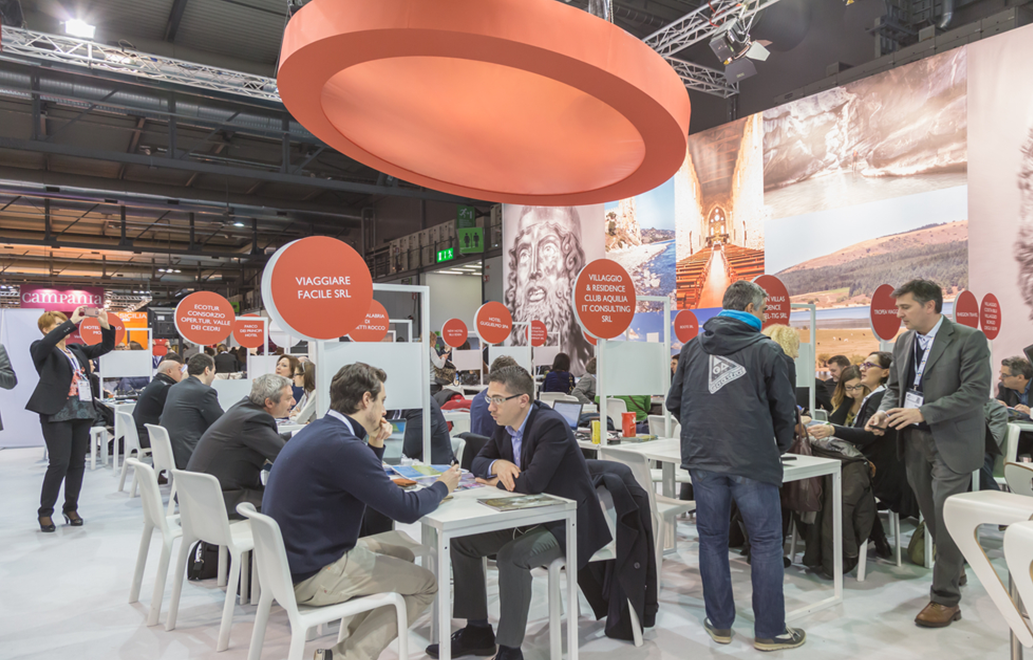Engagement strategies used by top-tier event production charlotte teams
Wiki Article
Just How Event Production Works: A Comprehensive Consider the Process
Event production is a complicated and structured process that calls for mindful preparation and implementation. It begins with establishing clear purposes and understanding the target market. Each step, from budgeting to location selection, plays a crucial role in making sure success. As the procedure unfolds, numerous aspects have to straighten perfectly. Yet, the subtleties of this detailed procedure often go undetected. What are the essential stages that add to a remarkable event?
The Initial Drawing Board
When beginning on event production, careful planning is vital to assure an effective outcome. The first preparation phase functions as the foundation for all subsequent initiatives. Throughout this stage, event producers need to define the event's purpose and purposes plainly. Identifying the target market assists customize the experience and messaging, ensuring relevance and engagement.Producers have to likewise take into consideration the event format, whether it be in-person, online, or hybrid, as this will affect different logistical components. Choosing a suitable date and location is essential, as it influences ease of access and availability.Furthermore, assembling a trusted team is basic for splitting responsibilities and streamlining interaction. Establishing a timeline with landmarks guarantees all tasks are finished on timetable. This stage involves extensive research study, consisting of identifying potential difficulties and devising strategies to reduce threats. Eventually, a well-structured initial preparation phase establishes the tone for a successful event production journey.
Budgeting and Source Appropriation
In event production, reliable budgeting and resource allocation are critical for success - event production charlotte. Establishing economic specifications sets the foundation for all subsequent decisions, while source circulation approaches ensure that every element of the event is adequately sustained. With each other, these aspects assist keep control over expenses and optimize using readily available sourcesDeveloping Financial Parameters
Developing economic specifications is crucial to the success of any event production, as it sets the foundation for reliable budgeting and resource allocation. This process begins with specifying the overall budget, which incorporates all elements of the event, including place costs, catering, and advertising and marketing. By recognizing available funds, event organizers can focus on expenses and allot resources as necessary. On top of that, it is vital to conduct extensive marketing research to expect potential costs and recognize funding resources, such as sponsorships or ticket sales. Establishing clear economic criteria also aids in danger monitoring, enabling planners to allot contingency funds for unforeseen expenses. Inevitably, a well-defined budget plan acts as a roadmap, guiding the event production group in the direction of accomplishing their goals while keeping financial control.Resource Circulation Approaches
Efficient resource circulation methods are essential for making best use of the influence of an event while adhering to spending plan constraints. Effective event production requires a thorough approach to budgeting and resource allowance. Organizers must focus on important components such as venue, wedding catering, and technology, making sure that funds are designated to locations that boost participant experience. A detailed spending plan needs to detail expected expenses and determine areas for possible cost savings, such as bargaining with suppliers or exploring sponsorship opportunities. Additionally, tracking expenses throughout the planning procedure helps protect against overspending. By employing calculated resource circulation, event manufacturers can supply a remarkable experience while preserving fiscal duty, inevitably adding to the overall success of the event.Venue Option and Logistics
Choosing the best place is vital to the success of any event, as it sets the stage for the overall experience. Venue choice includes evaluating numerous aspects, consisting of capability, access, and location. Planners must take into consideration the target market and the nature of the event, guaranteeing the venue lines up with the event's goals.Logistics play a considerable duty in this process, involving arrangements for seats, audiovisual devices, and providing services. A well-chosen location should assist in smooth flow for guests and personnel, improving engagement.Additionally, examining potential places for services like car park, bathrooms, and fire escape is very important for safety and security and benefit. The timeline for protecting the location is additionally important, as popular areas may book promptly - event production charlotte. Consequently, detailed preparation and timely execution can ultimately add to a smooth event experience, making place selection and logistics essential components of successful event production
Innovative Idea Growth
While the place establishes the physical stage, creative idea growth shapes the event's identity and story. This process starts with determining the event's purpose and target market, allowing event producers to develop an engaging motif that reverberates with participants. Brainstorming sessions usually include diverse perspectives, fostering innovative ideas that line up with the event's goals.Once a motif is established, visual aspects such as shade schemes, signage, and decoration are created to improve the total atmosphere. Narration techniques may additionally be integrated to produce an appealing journey for participants, guaranteeing an unforgettable experience. In addition, considerations relating to entertainment, activities, and interactive parts are straightened with the picked idea, reinforcing the motif throughout the event.Ultimately, effective imaginative concept advancement warranties that every aspect of the event functions cohesively, leaving a long lasting impression on participants and meeting the event's goals. This fundamental job prepares for subsequent planning and implementation phases.Collaborating With Vendors and Vendors
Effective event production depends upon reliable cooperation with suppliers and distributors. Picking dependable companions, bargaining agreements efficiently, and making certain prompt shipments are crucial actions in this process. Each of these factors adds substantially to the general success and smooth implementation of an event.Choosing Reliable Partners
How can event organizers guarantee a smooth production experience? Picking dependable companions is vital in attaining this goal. Event coordinators have to conduct complete study to recognize suppliers and distributors with a tested record of quality. This includes checking referrals, reviewing profiles, and assessing consumer feedback. Planners ought to focus on partners that demonstrate professionalism and trust, timely interaction, and a determination you can check here to team up. Structure strong relationships fosters trust fund and allows fast analytic throughout the event. In addition, it is valuable to choose neighborhood suppliers that comprehend the venue and local logistics. Inevitably, a successful event depends upon the harmony between planners and their partners, making sure that every aspect of production runs efficiently and efficiently.Discussing Contracts Efficiently
Effective negotiation of agreements is an important step in the cooperation between event coordinators and their suppliers and providers. This procedure includes clear communication of assumptions, deliverables, and timelines. Planners ought to perform thorough study on market prices and industry criteria to develop a baseline for settlements. It is necessary to create a collaborative environment, motivating open discussion concerning terms, prices, and potential contingencies. Coordinators need to additionally focus on comprehending the vendor's abilities and constraints to align their demands properly. Flexibility can result in mutually useful contracts, promoting long-lasting partnerships. Crafting well-defined agreements that consist of certain performance metrics can aid ensure responsibility, eventually bring about successful event execution and complete satisfaction for all events included.Guaranteeing Timely Distributions
Timely deliveries are vital for the smooth implementation of any type of event, needing attentive cooperation between organizers and their vendors and suppliers. Efficient communication is important, as it aids develop clear assumptions concerning shipment schedules, amounts, and particular needs. Organizers typically create thorough timelines to lay out vital turning points, guaranteeing all celebrations continue to be aligned throughout the procedure. Routine check-ins with suppliers can aid recognize prospective hold-ups early, enabling aggressive solutions. In addition, developing solid partnerships with reputable distributors promotes trust fund and liability, which can result in better service and prioritization. By prioritizing these collaborative efforts, organizers can lessen interruptions, thus boosting the overall efficiency of event production and making sure that all needed products and solutions arrive as prepared.Advertising And Marketing and Promotion Techniques
While organizing an occasion, the success of advertising and marketing and promo methods can greatly influence attendance and involvement. Effective methods frequently consist of a mix of digital advertising, typical advertising and marketing, and grassroots outreach. Utilizing social networks systems allows for real-time communication and targeted advertising, getting to specific demographics efficiently. Email advertising and marketing campaigns can even more engage possible attendees with tailored content and reminders.Collaborations with influencers or sector leaders can also improve reputation and broaden reach. Producing engaging web content, such as video clips or blogs, aids to create buzz and suffer interest leading up to the event. Furthermore, leveraging early-bird discount rates and unique rewards can incentivize ticket purchases.Promoting via traditional channels, such as posters or local media, remains relevant, especially in community-focused occasions. A complete approach that integrates numerous strategies assurances optimum exposure and engagement, eventually adding to the event's success and the creation of a remarkable experience for guests.
On-Site Execution and Administration
On-site implementation and monitoring are crucial components that establish the total success of an occasion. Effective coordination throughout the event ensures that all aspects straighten with the intended program. Event supervisors manage logistics, consisting of supplier coordination, equipment arrangement, and visitor solutions. Keeping an eye on timelines and attending to any unanticipated issues are fundamental for keeping a seamless experience.The team plays a considerable duty, as trained employees are liable for various tasks such as enrollment, details circulation, and technical assistance. Communication among staff member is crucial; it promotes a collective useful site atmosphere and allows fast resolution of challenges.Additionally, security procedures need to be adhered to, protecting the health of all guests. Post-event analyses are likewise component of on-site management, supplying understandings for future improvements. By concentrating on these elements, event manufacturers can produce memorable experiences that fulfill or surpass participant expectations while achieving the event's purposes.Frequently Asked Questions
Just how Do I Pick the Right Event Style?
Picking the best event style entails thinking about the target audience, event purpose, browse around these guys and venue. Looking into existing patterns and collecting input from stakeholders can also motivate creative ideas that resonate and develop an unforgettable experience.
What Prevail Mistakes in Event Production?
Typical mistakes in event production typically include insufficient preparation, poor communication amongst staff member, budget mismanagement, disregarding to think about the audience's needs, and stopping working to conduct a complete post-event assessment for future improvements.Just How Can I Determine Event Success?
To gauge event success, one can evaluate guest satisfaction, involvement degrees, spending plan adherence, and post-event feedback. Trick efficiency indications, such as ticket sales and social networks interactions, also offer beneficial insights right into general performance.What Should I Do if It Drizzles on the Event Day?
In the event of moisten the day, the organizer must implement backup strategies, such as securing outdoors tents or moving tasks inside your home. Communication with attendees regarding modifications is vital to guarantee a smooth experience in spite of climate challenges.Just How Can I Guarantee Participant Engagement During the Event?

Report this wiki page